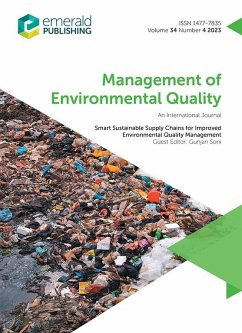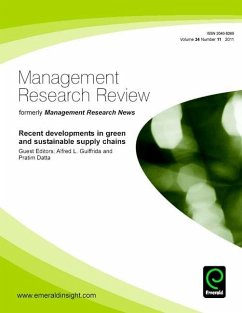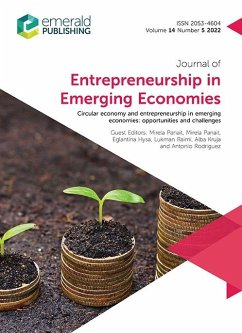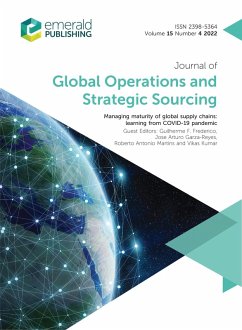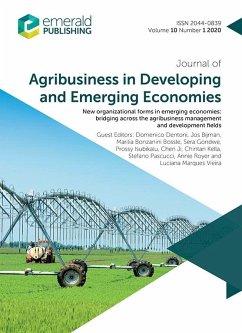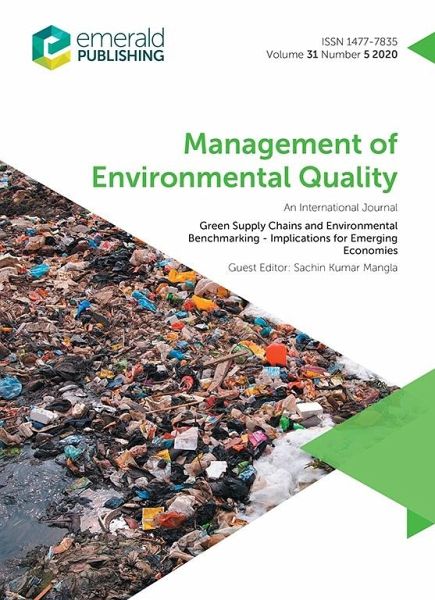
Green Supply Chains and Environmental Benchmarking - Implications for Emerging Economies (eBook, PDF)

PAYBACK Punkte
53 °P sammeln!
Green Supply chain management (GSCM) has been acknowledged as an important business strategy to achieve economic objectives by reducing environmental risks of the supply chain (SC) processes and operations. Conceptually, GSCM spans over the intersecting concepts of environmental management and supply chain management (SCM), and is principally focused on minimising environmental impacts while maintaining a balance of SC performance with the environmental measures (Sarkis, 2012). Globally, organisations are striving hard to increase the sustainability of their operations, and thus, putting great...
Green Supply chain management (GSCM) has been acknowledged as an important business strategy to achieve economic objectives by reducing environmental risks of the supply chain (SC) processes and operations. Conceptually, GSCM spans over the intersecting concepts of environmental management and supply chain management (SCM), and is principally focused on minimising environmental impacts while maintaining a balance of SC performance with the environmental measures (Sarkis, 2012). Globally, organisations are striving hard to increase the sustainability of their operations, and thus, putting great efforts and resources into the greening of their SC operations. However, there have been mixed responses from practitioners in developing countries. Scholars have previously reported positive impacts of GSCM adoption in emerging economies. However, the organisations have been struggled in adopting GSCM in their operations (Ahmed et al., 2018). The concept of GSCM is relatively unexplored in emerging economies as business organisations lacks in its implementation (Gandhi et al., 2016). In this sense, there is a great need to understand the implications and application of GSCM from an operational context. Further, managers and practitioners are also seeking to benchmark the GSCM practices for improving their green performance. The ebook (SI) of Management of Environmental Quality, Green Supply Chains and Environmental Benchmarking - Implications for Emerging Economies, explores this broad view of GSCM specifically from an emerging economy perspective.
Dieser Download kann aus rechtlichen Gründen nur mit Rechnungsadresse in A, B, BG, CY, CZ, D, DK, EW, E, FIN, F, GR, HR, H, IRL, I, LT, L, LR, M, NL, PL, P, R, S, SLO, SK ausgeliefert werden.





